In our new book, Becoming A Consummate Athlete, we talk about a bunch of different habits that can help you make your lifestyle and your training work smoother together so you get results without adding more training hours. (You can read the full table of contents to get an idea of all the habits we dive into right here!)
Today, we wanted to share a snippet from the first section of the book that’s all about how to form new habits. We’re asking if you’re an addition or a subtraction type of person when it comes to habits… Not that you can’t be both, but most of us have one that’s going to be easier to put into place than the other. And when getting started with changing habits for a healthier life, we want to make things AS EASY AS POSSIBLE. What exactly do we mean?
Everyone has different ways of finding success when it comes to habit change. For some, thinking about adding healthy habits is an easier starting point than subtracting unhealthy ones, and can lead to eventually overpowering or replacing those bad habits. For others, though, their schedules are already so crammed that the idea of adding something else to the daily routine seems impossible, while dropping a less-healthy habit is a lot easier.
Addition Habits include:
- 5 minutes of meditation in the morning
- Post-workout stretch sessions
- Extra vegetable in with breakfast
- Added strength workout once a week
Subtraction Habits include:
- Reducing alcohol to 3-4 drinks per week (or whatever you decide is less than your current habit)
- Not eating dessert after dinner every night
- Not starting a movie after 10PM
- Not ordering an appetizer at the restaurant (or digging into the bread basket)
You can certainly add and subtract in conjunction with each other, like adding some fresh fruit for dessert while taking away that second glass of wine after dinner. And it’s not an across-the-board thing: for you, it may be easier to add things to your lifestyle, like meditation, but you struggle with adding more vegetables to your diet. (For Molly, just about any subtraction is do-able, other than subtracting chocolate—she will fight you if you try to take that away, so that’s off the bargaining table… for now, at least.)
For most healthy habits, there’s an option for addition or subtraction. For instance, in a goal towards the healthy habit of eating more vegetables, you may opt for addition—adding a vegetable to each meal. Or, you could phrase it as a subtraction—reducing your other carbohydrate source at dinner, which will leave more room for vegetables on your plate and in your stomach. Whenever a habit seems impossible to integrate into your life, remember that there is likely another angle to take with it. The shift may make a habit that seems unwieldy or time-consuming feel infinitely less stressful and actually time-saving instead.
This isn’t meant to be a black-and-white, all-or-nothing kind of choice between adding and subtracting. It’s simply one way of looking at habit change and trying to figure out what method will work best with your life as you approach all of the habits in this book.
For addition types, the RECOVERY section of Becoming A Consummate Athlete might be a good spot to start, since many of the habits in there are ones that will only take a few minutes on a daily basis but will reap big rewards (like meditation and visualization exercises, or those rehab exercises you know you should be doing).
For those who prefer subtraction, head to the FUEL section of Becoming A Consummate Athlete, since often the time-crunched athlete can make huge strides by just cleaning up his or her eating habits. And while adding vegetables and water are both important tasks, a lot of clean eating is about taking out ultra-processed foods, cutting down on alcohol, and subtracting that afternoon latte. Eating smarter takes willpower, but it doesn’t really take much extra time. (That’s right, even if you’re not willing to meal prep, we all know you are completely capable of not ordering a large cappuccino with an extra squirt of mocha. It might mean gradually easing off of milk-based beverages or simply not going into coffee shops most days.)
Just some food for thought as you start down the road to dialing in more healthy habits! Start with the easier ones to implement, find some early successes, then get into the tougher stuff.






